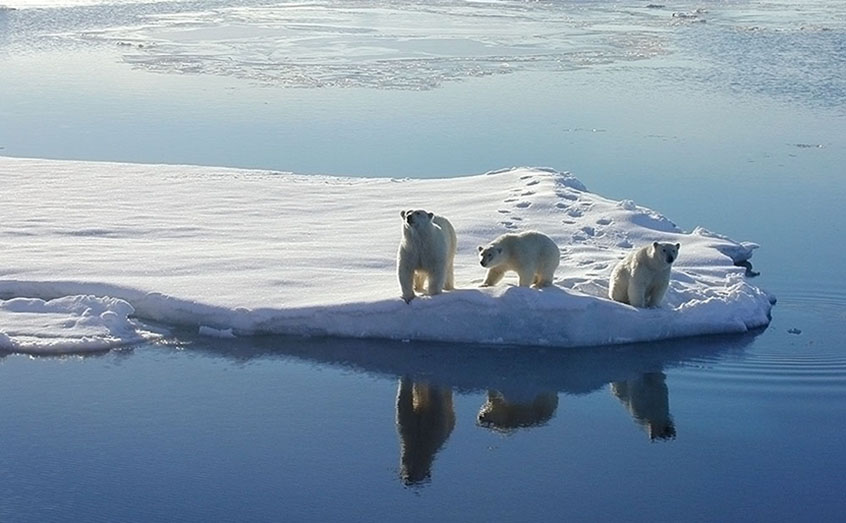SAMS news room
Gathering of polar scientists to make Oban the ‘Gateway to the Arctic’

The UK’s leading Arctic scientists will meet in Oban this month to discuss the rapid environmental change being seen in the polar region.
The Scottish Association for Marine Science (SAMS) is hosting the biennial UK Arctic Science Conference from September 19 – 21 and will welcome around 130 researchers to the town’s Corran Halls. The event is supported by the Natural Environment Research Council (NERC) Arctic Office.
As part of the programme, environment and science broadcaster Tom Heap, best known as a presenter on the BBC’s Countryfile, will give a public lecture on how the Arctic affects us all. The lecture, which is free to attend, will take place in the Corran Halls from 7.30pm on Tuesday, September 19.
Mr Heap, whose father was head of the Polar Regions Department in the Foreign and Commonwealth Office and Director of the Scott Polar Research Institute, said: “From explorers and whalers to eco-campaigners and meteorologists, the frozen north has fascinated our minds and affected our lives for centuries. Today, the retreating ice is unlocking fresh narratives of the North as we contemplate a new Arctic geography.
"The conference will be a great chance to catch up with top polar scientists and original thinkers on matters concerning the top of the world. It should be lively and a great resource for me as a journalist.”
The conference will give scientists an opportunity to share ideas and research in how to better predict, and prepare for, extreme changes in the climate of the northern hemisphere.
Arctic scientist Dr Finlo Cottier of SAMS chairs the conference’s local organising committee and said SAMS’ commitment to Arctic research and Scotland’s proximity to the region made Oban the ideal host venue.
He said: “Oban is known to many as the Gateway to the Isles but for UK science it is really the Gateway to the Arctic and we are delighted to welcome the Arctic science community to Oban.
“The environmental changes in that region are giving us a window into the pace and effects of climate change and SAMS is involved in many national and international Arctic projects to help nations across the northern hemisphere prepare for the future.”
The Arctic region has seen the most dramatic changes in climate over the past few decades, with ice melting at a quicker rate each year because of rapid warming. While the daily average global temperature rose by 0.55 degrees Celsius from 1979 – 2000, the temperature in the Arctic rose by 6.42 degrees Celsius for the same period. The average Arctic sea ice cover for November 2016 set a record low, leading to suggestions that sea ice cover could be at a tipping point, from which that the region may not recover.
SAMS is leading two international Arctic projects, Arctic PRIZE and DIAPOD, which are funded by NERC and aim to discover how retreating Arctic ice cover will affect the ocean environment.
Henry Burgess, Head of the NERC Arctic Office, said: “The UK is at the leading edge of high-quality and independent Arctic research, with real-world impact. This event is a fantastic opportunity for researchers to share their findings, redouble their commitments to understanding the consequences of rapid environment change, and connect to the public. It is a real pleasure to have been able to support SAMS in hosting this event here in the fantastic town of Oban. The work of SAMS and other organisations is essential to strengthen the country’s resilience to the kinds of environmental change that we will see in the years ahead. We look forward to working even more closely in the future.”
